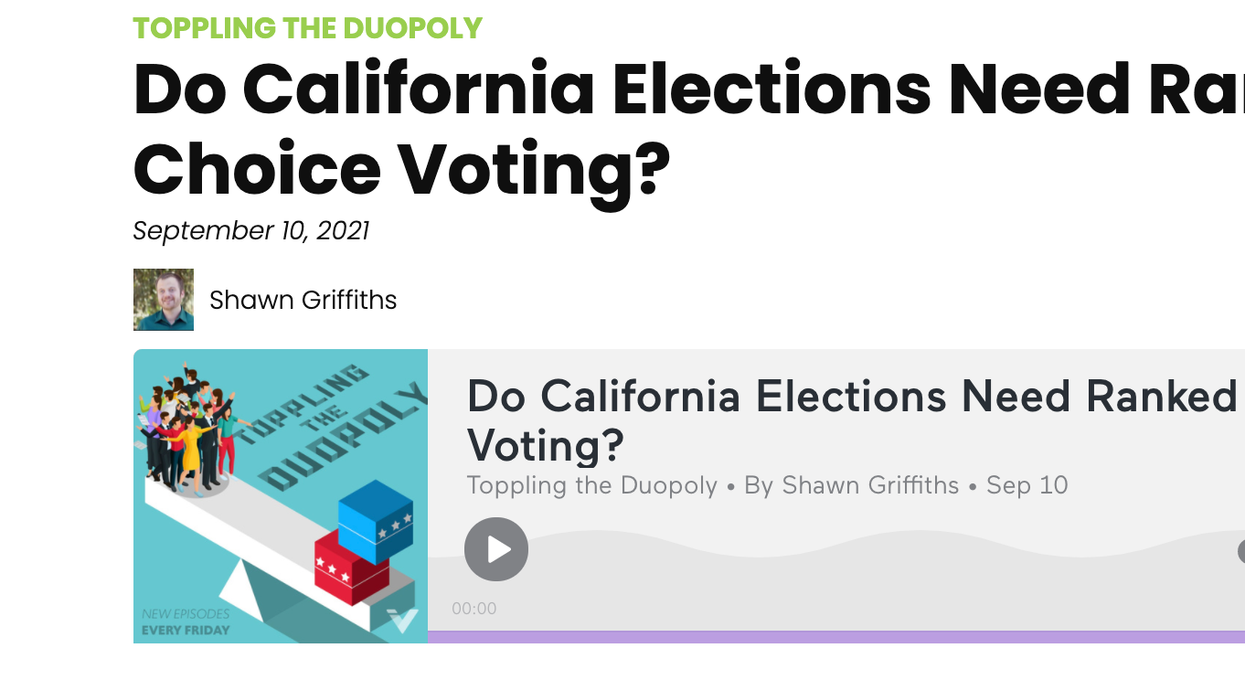In this edition of the Toppling the Duopoly podcast, host Shawn Griffiths is joined by Tom Charron, who represents a new group called the California RCV Coalition (Cal RCV). At a time when ranked choice voting is gaining attention, the group is set to officially launch on September 21 st during an online Zoom event that is open to the public.
Charron explains why more California cities and the state as a whole need ranked choice voting for their elections and the benefits it would bring to bolstering representation across sociopolitical demographics. The discussion examines the nonpartisan nature of ranked choice voting, which now has broad support across the political spectrum.





















